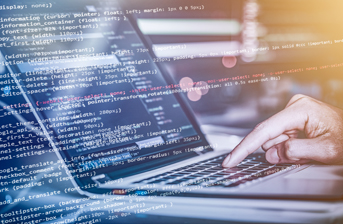Cranfield Defence and Security, part of Cranfield University, with the Defence Cyber School has run the UK’s first National Cyber Deception Symposium. The main speaker at the November 6 event in Shrivenham, Wiltshire was Air Commodore Tim Neal-Hopes. He has completed an MSc at Essex University in Computer and Network Security; an MBA with the Open University; and an MA in Defence Studies; and is the author of ‘Preventing a Cyber Dresden: How the Lessons of Air Power can Influence the Development of Cyber Power’.
Cyber deception exploits technical assets such as honey pots and honey tokens to spy on and manipulate the activities of a network attacker. The aim; to develop a national focal point for cyber deception and help the Ministry of Defence (MOD) better defend their networks in cyberspace. A National Cyber Deception Laboratory (NCDL) aims to bring together practitioners and researchers across Government, academia and industry to facilitate research and provide guidance in the context of national security.
Cranfield says that cyber deception is likely to be one of the most significant growth areas in cybersecurity. The evolution of the field within the UK military will allow network defenders to take a proactive approach by using military deception tradecraft to defend against and manipulate the activities of attackers operating within their networks. This may involve confusing the enemy into taking steps that might expose their identity or sabotaging their attacks.
Darren Lawrence, Director of the NCDL, Senior Lecturer in Behavioural Science is Head of the Information Operations Group at Cranfield University. He said: “Military networks need a full spectrum military defence – existing civilian security approaches are simply not up to this task. Deception is all about creating errors in how our adversaries make sense of their world. It is about getting them to act in ways that suit our purposes, not theirs. Researching ways to shape attacker behaviour and deny them the freedom to operate within our networks will enable military cyber defence to move on to a more aggressive footing and deter future attacks.”
Air Commodore Tim Neal Hopes OBE, is head of the MoD’s C4ISR (Command, Control, Communications, Computers, Intelligence, Surveillance and Reconnaissance) and Cyber Jt User. He said: “We live in a period of constant contest. A period where the UK is attacked through cyberspace on a daily basis. Defence, if it is to maintain operational effectiveness, must therefore defend its information, networks and cyber-dependent capabilities, against these perpetual attacks. Cyber Deception is a crucial element of cyber defence and I am therefore delighted to champion the creation of the National Cyber Deception Laboratory (NCDL) as part of that collective effort, and look forward to bringing the full force of the NCDL to help the UK MOD, and her allies, operate securely in the information age.”










